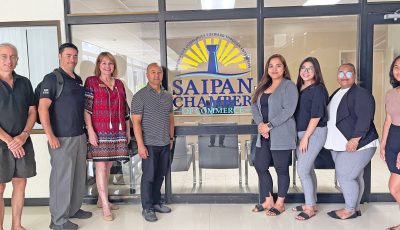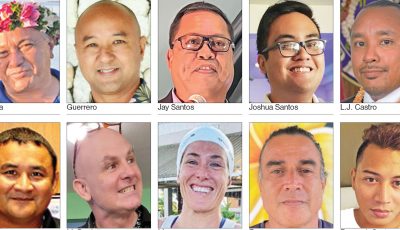‘Unmet needs voices missing from the table’
Reiterating the message from a book given to her by American Red Cross-NMI Chapter director John Hirsch, Commonwealth Advocates for Recovery Efforts director Jenny Hegland stated at the last meeting with Federal Emergency Management Agency officials how the voices of those with unmet needs are missing from the discussion table in their efforts toward recovery.
“It’s really got me thinking about big picture strategic questions. I just wanted to share some of this thinking with the group because I would really love everyone’s input and ideas in relation to any of these things because our mission is to build a resilient community which will identify and address the long-term unmet needs of individuals impacted by disaster,” she said.
What’s interesting, she said, is that you can address unmet needs without building a resilient community.
“One of the great things is that there are specific research-based identifiable factors in communities that are resilient. They’re able to withstand disaster and prevent more impact from future disaster, which is what we want,” she said.
The book, titled Toxic Charity, illustrates how public service or even charitable and compassionate efforts can worsen a community.
“A couple of things in this book that I think are really critical is the importance of focusing on outcomes rather than activity. It’s really easy to try to look really busy to show everyone what we’re doing but at the same time, we want to be strategic and see whether they are the outcomes we are working toward,” she said.
The other point, she said, is the importance of the way the organization goes about their work and their decision making process.
“When I was at the Saipan Chamber of Commerce, I asked the audience if they or someone they knew were impacted by the disaster and a very small number raised their hands,” she said.
“The voices of those we’re trying to serve are missing from this table. The book talks about these ideas of mutuality, reciprocity, and accountability. If we’re really going for long-term impact and not just Band-Aid approaches to giving people roofs…those voices, those impacted by disaster really need to become authors of the rules, builders of the community and dispensers of the resources,” she said.
The book further illustrates how good intentions can have unintended and dire consequences. In an excerpt from the book about free food and clothing distribution, “[this] encourages ever-growing handout lines, diminishing the dignity of the poor while increasing their dependency. We converge on inner-city neighborhoods to plant flowers and pick up trash, battering the pride of residents who have the capacity and responsibility to beautify their own environment…“
Hegland presented these ideas to the CARE subcommittees, asking them to consider options as they move forward with their mission.
“Sometimes well-intended work can have adverse consequences. So this idea of groups doing for others what they could do for themselves is disempowering and has the ability to take away people’s dignity,” adding that the organization, “…[must] do this in a way that really honors people at every layer of socio-economic status.”
If you’d like to be part of the discussion, call CARE at 783-7790 or log on to www.cnmicare.com.



























